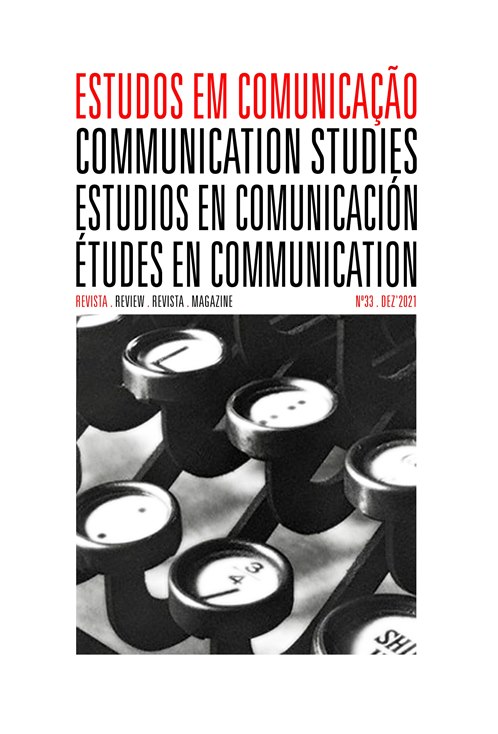Brazilian Military Dictatorship and New Cartographic Forms: Collective Memory and Collaborative Digital Maps
Keywords:
Collaborative digital maps, Collective memories, Military dictatorship, Internet, Cartography.Abstract
The current quest, on and offline, for the resignification of sites of memory referring to the Brazilian Military Dictatorship (1964-1985) motivates this investigation. Two collaborative digital maps, that illustrate collective memorial practices, have been selected as case studies. The description and analysis of these projects based on concepts such as space, time, silencing and participation indicate that: a) there is a movement drawing attention to silenced memories that are left aside within the urban space; b) the cartographies carry on meanings related to the intentionalities of their producers and participants; c) the data legitimacy is fostered by the usage of links to news and other important websites, as well as testimonies; and d) predominate the presentation of certain brazilian regions’ memories. The cultural phenomena indicate, therefore, ways of elaborating collective memories supported by digital media.References
ASSMAN, J. Collective memory and cultural identity. New German Critique, n. 65, 1995.
AGUILAR, P. Memory and amnesia: The role of the spanish civil war in the transition to democracy. Oxford, New York: Bergham Books, 2002.
ALDERMAN, D. Street Names as Memorial Arenas: The Reputational Politics of Commemorating Martin Luther King Jr. in a Georgia County. Historical Geography, v. 30, 2002, 99-120.
BURKE, P. A escrita da história: novas perspectivas. São Paulo: Ed. UNESP, 2006.
HALBWACHS, M. A memória coletiva. São Paulo: Centauro, 2006.
HETHERINGTON, K. Rhythm and noise: the city, memory and the archive. The Sociological Review, 61: S1, 2013, 17–33.
HOSKINS, A. Anachronisms of media, anachronisms of memory: from collective memory to a new memory ecology. In: NEIGER, M.; MEYERS, O.; ZANDBERG, E. (Ed.). On media memory: collective memory in a new media age. United Kingdom: Palgrave Macmillan, 2011a, 278-288.
HOSKINS, A. Digital network memory. In: ERLL, A.; RIGNEY, A. (Ed.). Mediation, remediation, and the dynamics of cultural memory. Berlin and New York: Walter de Gruyter, 2009, 91-106.
HOSKINS, A. From collective memory to memory systems. Memory Studies, v. 4, n. 2, 2011b, 131-133.
HUYSSEN, A. Seduzidos pela Memória: arquitetura, monumentos e mídia. Rio de Janeiro: Aeroplano Editora, 2000.
JENKINS, H. A cultura da convergência. São Paulo: Editora Aleph, 2008.
KUCINSKI. B. “As ruas e os nomes”. In: K.: o relato de uma busca. São Paulo: Cosac Naify, 2014.
LE GOFF, J. História e memória. 7ª edição revista. São Paulo: Unicamp, 2013.
LÉVY, P. A inteligência coletiva: por uma antropologia do ciberespaço. 7 ed. São Paulo: Loyola, 2007.
NAS, P. Introduction: congealed time, compressed space; roots and branches of urban symbolic ecology. International Journal of Urban and Regional Research, v. 22, n. 4, 1998.
NORA, P. Entre memória e história: a problemática dos lugares. Projeto História, n. 10, 1993.
POLLAK, M. Memória, Esquecimento, Silêncio. Estudos Históricos, v. 2, n. 3, 1989.
READING A. Memory and digital media: six dynamics of the globital memory field. NEIGER, M.; MEYERS, O.; ZANDBERG, E. (Ed.). On media memory: collective memory in a new media age. United Kingdom: Palgrave Macmillan, 2011, 241-252.
SILVA et al. Dispositivos de memória e narrativas do espaço urbano. E-compós, Brasília, v.11, n.1, 2008, 1-17.
TELES, E. Edson Teles: depoimento. Entrevistadora: Ana Lúcia Mi- gowski da Silva. Entrevista concedida ao Projeto de Doutoramento da entrevistadora, ago. 2015/
THEMEN, D. Afterthoughts: A Participatory Historical Culture. In: ROZENSWEIG, R.; THEMEN, D. (Ed.). The presence of the past: Popular uses of history in American Life. New York: Columbia University Press, 1998.
Downloads
Published
Issue
Section
License

This work is licensed under a Creative Commons Attribution-NonCommercial-NoDerivatives 3.0 Unported License.
Estudos em Comunicação/Communication Studies is an Open Access journal. All its content is freely available without charge to the user or his institution. Users are allowed to read, download, copy, distribute, print, search, or link to the full texts of the articles in this journal without asking prior permission from the publisher or the author. Estudos em Comunicação, by Labcom, is licensed under a Creative Commons Atribuição-NãoComercial-SemDerivações 3.0 Unported License. By submitting your work to Estudos em Comunicação/Communication studies you confirm you are the author and own the copyright, that the content is original and previously unpublished, and that you agree to the licensing terms.


